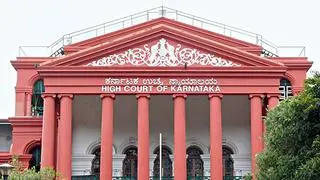The Public Examinations (Prevention of Unfair Means) Bill, 2024 was introduced in Lok Sabha on February 5, 2024. The Bill seeks to prevent the use of unfair means in public examinations and promote fair conduct of examinations in the country.
What are the examinations covered by this Bill? What are the offences laid out by the Bill?
The Bill covers all examinations conducted by the Union Public Service Commission, Staff Selection Commission, Railway Recruitment Boards, Institute of Banking Personnel Selection, Ministries or Departments of the Central Government and their attached and subordinate offices for recruitment of staff and National Testing Agency. The provision may extend to other authorities notified by the Central Government. Some of the prominent examinations covered include the NEET, JEE, UGC NET and UPSC CSE.
Some of the offences laid out by the bill include paper leakage, assisting candidates without authorisation, tampering with answer sheets, violating norms, manipulation, obstruction and threatening anyone associated with the examination; conspiracy for unfair means; and disruption in conducting public examination.
It also said that no premises other than the examination centre shall be used for public examination, and that the service provider or any person associated with it shall be deemed to have committed an offence if he fails to report the incidence of any unfair means or commission of any offence.
A few other offences listed include tampering with any document necessary for short-listing candidates or finalising the merit or rank of a candidate”; “tampering with the computer network or a computer resource or a computer system”; “creation of fake website” and “conduct of fake examination, issuance of fake admit cards or offer letters to cheat or for monetary gain” as illegal acts.
What are the punishments suggested for those found cheating in examinations?
An officer not below the rank of Deputy Superintendent of Police or Assistant Commissioner of Police will investigate any offence under this Act, once it comes into force. Anyone found resorting to unfair means will be liable for imprisonment for a term not less than three years. It can extend to five years with fines of up to ten lakh rupees. All offences under the Bill will be cognisable, non-bailable, and non-compoundable.
How is the Bill trying to make the system providers and officials of the government responsible for the offences?
The bill says that the service provider may face a fine of up to one crore rupees, along with the cost of the examination if they are engaged in providing resources for support for such practices. They will also be banned from conducting any public examination for four years. Additionally, there are penalties for officers and institutions involved in the crime. If it’s found during the investigation that the offence was committed with the consent, knowledge, or connivance of any Director, Senior Management, or persons in charge of the service provider firm, they could face imprisonment for a minimum of three years and up to ten years, along with a fine of one crore rupees. If they fail to pay the fine, they may face additional imprisonment.
What is the organised crime specified in the Bill? What are the penalties here?
According to the bill, an organised crime is an unlawful activity committed by a “person or a group of persons indulging in unfair means in collusion and conspiracy to pursue or promote a shared interest for wrongful gain in respect of a public examination.” In simpler terms, it is defined as an unlawful activity committed by a person or group of persons collaborating to cheat or manipulate a public examination for their benefit.
Is this bill enough to check unfair examination practices?
Even though the bill was introduced to check unfair examination practices, experts say that the erstwhile Indian Penal Code already had provisions to charge persons found indulging in unfair examination practices. Narender Nagarwal, a Senior Assistant Professor at Delhi University’s Faculty of Law says that the bill isn’t fully fool-proof and does not have provisions to check government authorities and officers who get involved in unfair practices.
“There is no mechanism to check the culpability if someone from the government’s or government agency’s side is involved. Instead what we need is a leak-proof mechanism and an unbiased investigative agency to solely look into these crimes,” he added. He also said that while the bill may keep a check on coaching institutions that get involved in question paper leakage, he added that progressive initiatives taken by the National Testing Agency in the recent past have brought down a lot of those incidents.







